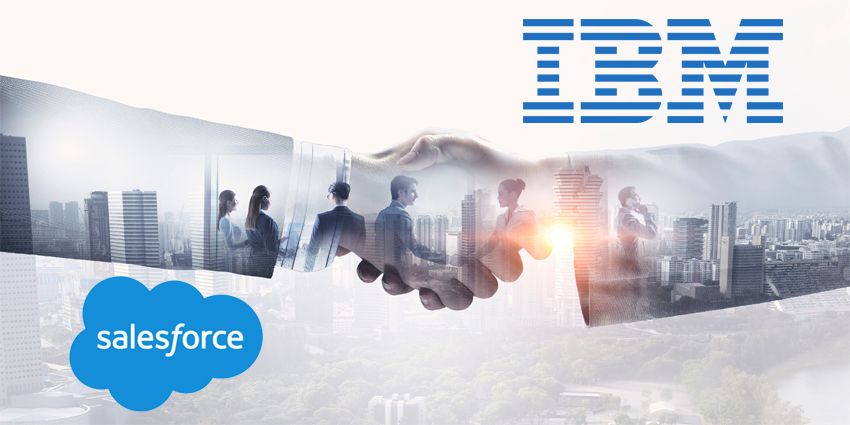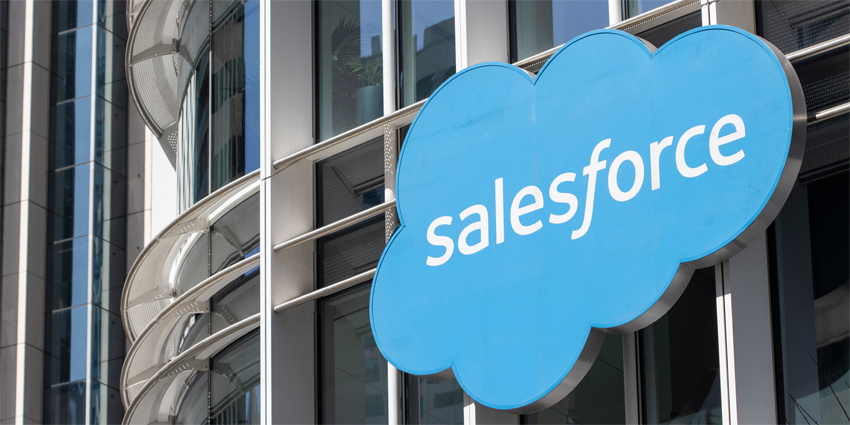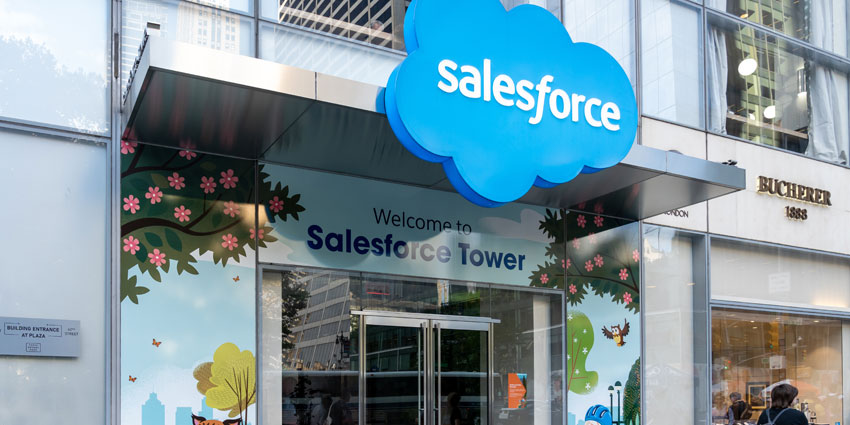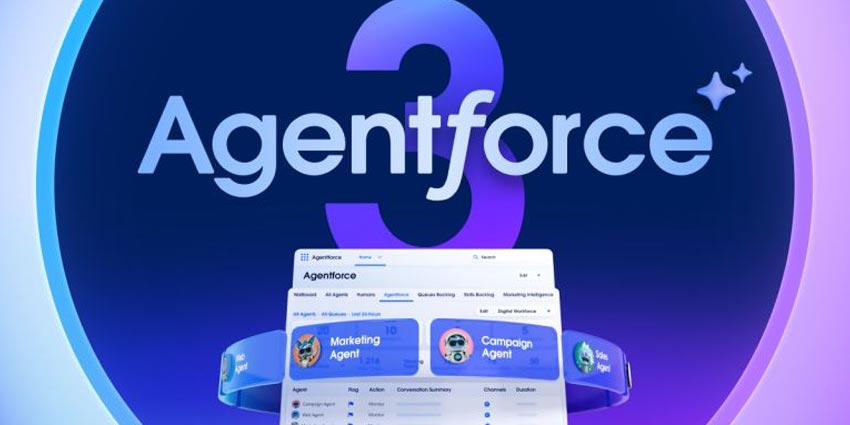Salesforce and IBM have announced an expansion of their strategic partnership.
The two tech titans believe that the collaboration will deliver “greater customer choice and flexibility” for their AI and data offerings.
By combining the capabilities of IBM’s Watsonx AI and Data Platform and Salesforce’s Einstein 1 software, the companies claim that customers will be able to make more informed, data-driven decisions and access actions directly from their workflow.
In addition, users will benefit from bidirectional data integration, flexible large language models (LLMs), prebuilt actions and prompts for CRM solutions, and a strengthened commitment to responsible AI development.
The partnership will also involve IBM joining Salesforce’s Zero Copy Partner Network – a collection of tech firms committed to streamlining the way businesses access and use customer data.
Rahul Auradkar, EVP & GM of Unified Data Services & Einstein at Salesforce, emphasized the improvements in data deployment that the expanded partnership will bring about:
Salesforce and IBM are well positioned to make it easier for customers to get the most value from their data — no matter where it resides — and establish a foundation for customer engagement and trusted AI.
“With the addition of bidirectional data integration, companies can harmonize all of their data faster, fueling actionable insights that empower teams to make data-driven decisions and deliver amazing integrated experiences across all touchpoints and channels for every customer interaction.”
So, let’s take a closer look at some of the added features customers will be able to enjoy.
LLM Enhancements
While the expanded partnership boasts a number of fresh tools and capabilities, arguably, the most impactful innovation will involve LLMs.
Salesforce’s customizable Bring Your Own Large Language Model strategy will be boosted by watsonx.ai and Einstein 1 Studio integrations – providing users with even greater flexibility thanks to a selection of low-code AI builders.
Moreover, customers will be able to access IBM Granite, the company’s flagship AI model series. The solution trains models on enterprise datasets that adhere to stringent standards for data governance, while providing intellectual property protection from IBM for its customers.
Described as “highly performant and developer-friendly,” by integrating IBM Granite models with the Einstein 1 Platform, joint customers will have the capacity to leverage Granite models for various applications such as industry content generation, field summarization, and classification.
In discussing the integration of these enhanced models, Ritika Gunnar – General Manager of Product Management, Data, and AI at IBM – commented:
Clients need enterprise-grade foundation models that are trusted, performant, and cost-effective.
“Choosing the right foundation models is essential to every organization’s AI strategy and a key determinant of how quickly projects move from pilot to production. IBM and Salesforce are working together to make it easier to navigate the complex generative AI landscape by helping clients select the right LLM for their business needs.”
Perfecting the Prompts
Despite currently being under development and not scheduled to be released until later this year, another key feature of the strengthened collaboration will be IBM’s industry-specific prompt templates and copilot actions.
Set to be available in Einstein 1 Studio, these pre-built actions and prompts will be accessible to Salesforce customers via Einstein 1 Studio’s AI builders – enhancing applications like Einstein Copilot.
Initially focused on public sector use cases – such as government contact centers, eligibility determination, and licensing and permitting – these templates are optimized for both foundation and Granite models.
The companies also claim that they will benefit users in automotive, energy and utilities, financial services, and the public sector.
More News from Salesforce and IBM
With the sun finally making an appearance in some parts of the UK, Salesforce added to the feeling of seasonal change with the announcement of its Summer 2024 release.
Available June 17, 2024, generative AI (GenAI) looks set to play a big part in the suite of innovations, with the company also emphasizing access to LLMs on an open platform as a significant enhancement.
Although the release includes “hundreds of new features,” Salesforce listed the following six products as the “highlights” of the release: Bring Your Own LLM Expansion, Slack AI, Zero Copy Integration with Amazon Redshift, Vector Database, Data Cloud for Commerce, and a Digital Wallet.
For IBM, it’s a case of more of the same, having made the news earlier this month following the announcement that the company would be expanding its long-standing collaboration with SAP, as the companies aim to enhance client productivity and innovation through their “New Value Generation partnership.”
This initiative centers on GenAI and industry-specific cloud solutions to help clients unlock business value. Combining IBM’s GenAI infrastructure with SAP’s Rise program, the partnership aims to modernize legacy SAP enterprise resource planning.
Additionally, AI will be integrated into SAP’s business workflows within industry-specific cloud solutions and applications for various business lines.







